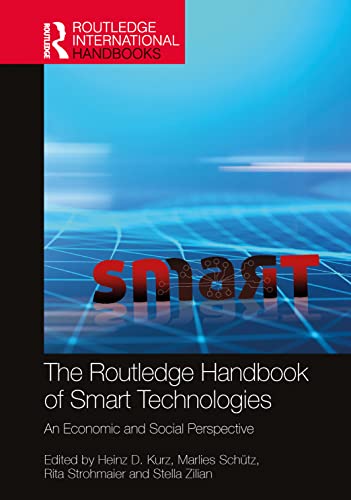

Most ebook files are in PDF format, so you can easily read them using various software such as Foxit Reader or directly on the Google Chrome browser.
Some ebook files are released by publishers in other formats such as .awz, .mobi, .epub, .fb2, etc. You may need to install specific software to read these formats on mobile/PC, such as Calibre.
Please read the tutorial at this link: https://ebookbell.com/faq
We offer FREE conversion to the popular formats you request; however, this may take some time. Therefore, right after payment, please email us, and we will try to provide the service as quickly as possible.
For some exceptional file formats or broken links (if any), please refrain from opening any disputes. Instead, email us first, and we will try to assist within a maximum of 6 hours.
EbookBell Team

0.0
0 reviewsThisHandbookprovides a thorough discussion of the most recent wave of technological (and organisational) innovations, frequently called “smart” and based on the digitisation of information. The acronym stands for "Self-Monitoring, Analysis and Reporting Technology". This new wave is one in a row of waves that have shaken up and transformed the economy, society and culture since the first Industrial Revolution and have left a huge impact on how we live, think, communicate and work: they have deeply affected the socioeconomic metabolism from within and humankind’s footprint on our planet. TheHandbookanalyses the origins of the current wave, its roots in earlier ones and its path-dependent nature; its current forms and actual manifestations; its multifarious impact on economy and society; and it puts forward some guesstimates regarding the probable directions of its further development. In short, theHandbookstudies the past, the present and the future of smart technologies and digitalisation. This cutting-edge reference will appeal to a broad audience, including but not limited to, researchers from various disciplines with a focus on technological innovation and their impact on the socioeconomic system; students across different fields but especially from economics, social sciences and law studying questions related to radical technological change and its consequences, as well as professionals around the globe interested in the debate of smart technologies and socioeconomic transformation, from a multi- and interdisciplinary perspective.